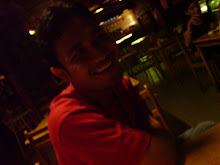There are 3.3 million Muslims living in Germany, the second largest Muslim population in Europe after France. An estimated 3.8 million Turks live in Western Europe, more than 2.6 million in Germany alone, forming the country’s largest foreign-born population. Muslims living in Germany enjoy substantial religious and cultural autonomy. They are free to practice and propagate their religion. Muslims have the freedom to construct mosques and other places of prayer and worship. There are some 2,500 places of Islamic worship and about 140 conventional mosques with domes and minarets. In most of the states, Muslim women have the freedom to wear the Islamic headscarf in school and in government offices. Muslim girls in Germany are exempt from coed gym and swimming classes in schools. Muslims living in Germany are allowed to slaughter animals according to their religious rituals and to have halal meat shops. Muslim associations in several states of Germany enjoy the status of religion-based communities, like churches and synagogues. In Hamburg, language teachers, even with Turkish nationality, are treated as civil servants. The cultural freedom available to Muslims living in Germany can be gauged from the fact that there are more than 40 Turkish-language TV stations and nearly 20 in Arabic. Some German companies (such as Ford in Cologne and Fraport in Frankfurt) provide separate spaces for prayers for Muslim employees and consideration is given to their dietary requirements in canteens.

The Maxloh district in Germany has a fairly large concentration of Turkish Muslims. The relations between the Turkish minority and local residents have been cordial. Many Muslim children attend the Catholic kindergarten, and Catholics and Muslims visit each others’ homes during festivals. Germany’s biggest mosque opened in the city of Duisburg in the Maxloh district on 26 October, 2008. Unlike some other mosque projects in Germany (such as in Cologne and Berlin), there were no protests from the local community. In fact, local politicians, church representatives and other public figures welcomed the opening of the mosque. The governor of the state of North Rhine-Westphalia, Jurgen Ruttgers, said, “We need more mosques in this country, not in the backyards, but visible and recognizable”. Thousands of local people gathered to witness the opening ceremony, displayed on a giant public viewing screen.
The mosque, which cost €7 million and can accommodate 3,500 worshippers, has a conference centre in the basement, which is open to all the people of the district of Maxloh, regardless of religious distinctions. The state of North Rhine-Westphalia has invested €3.2 million in the construction of the conference centre.
The mosque, which cost €7 million and can accommodate 3,500 worshippers, has a conference centre in the basement, which is open to all the people of the district of Maxloh, regardless of religious distinctions. The state of North Rhine-Westphalia has invested €3.2 million in the construction of the conference centre.



No comments:
Post a Comment